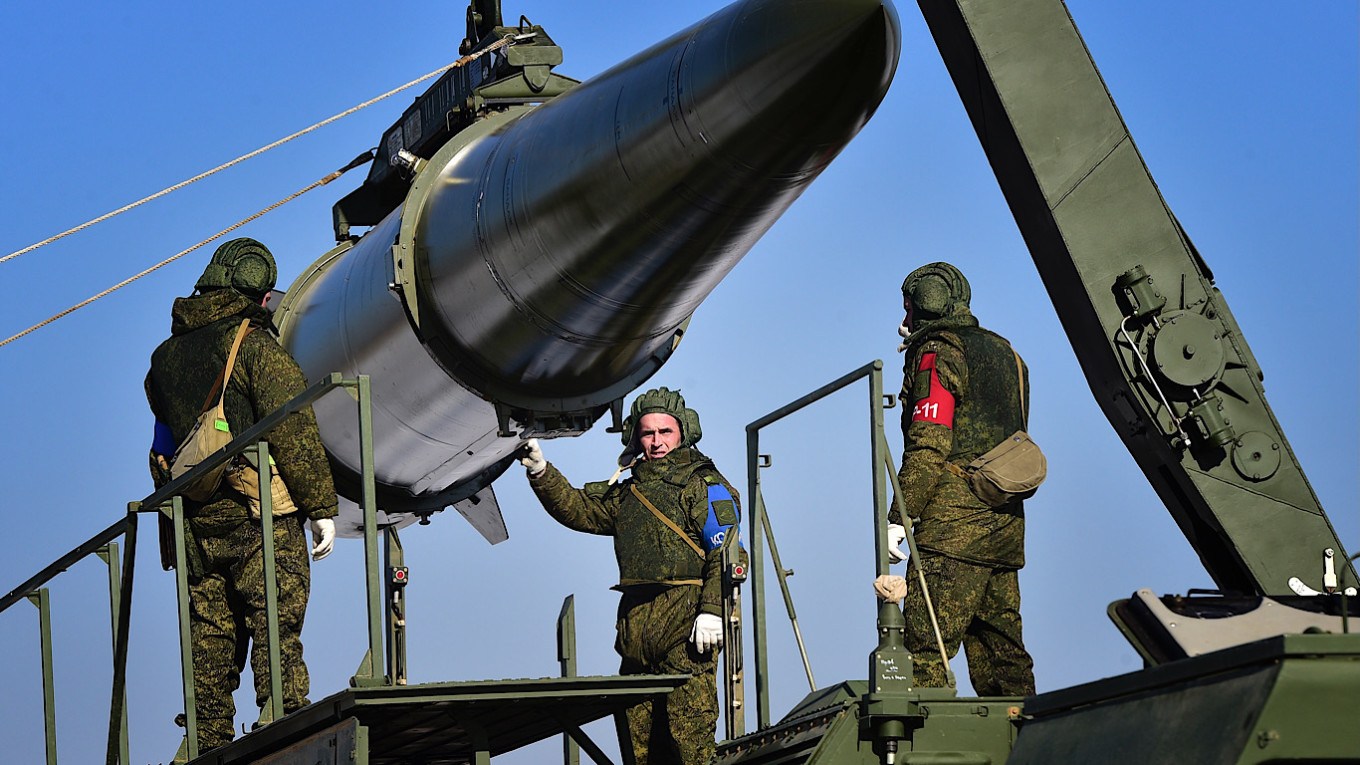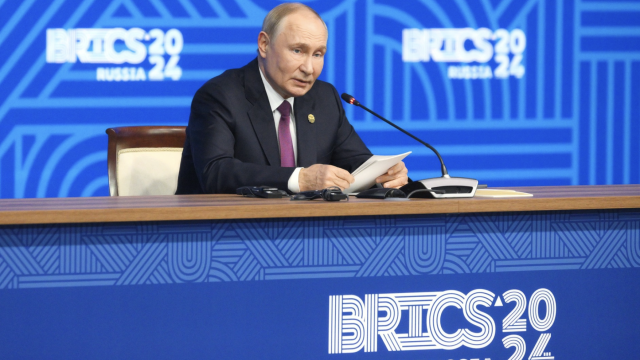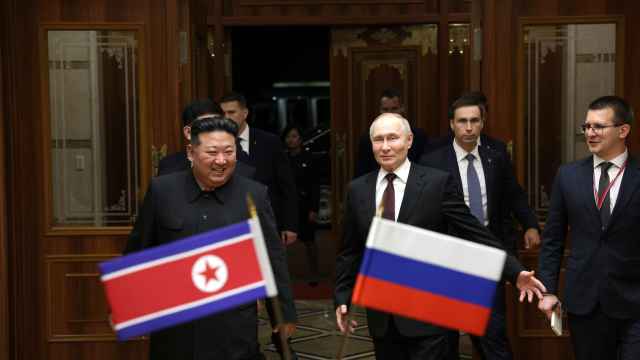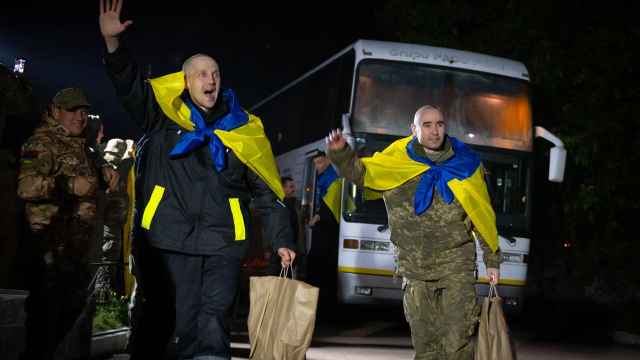Russia has modified its ballistic missiles to maneuver in flight and evade Ukrainian air defense systems including U.S.-supplied Patriots, the Financial Times reported Thursday, citing Ukrainian and Western officials.
Patriot systems are among the most advanced tools available to intercept Russian missiles, and Ukrainian officials have repeatedly stressed their critical need for more.
The changes appear to affect both the Iskander-M short-range ballistic missile system and air-launched Kinzhal missiles, which have ranges of about 480 to 500 kilometers.
Instead of following a predictable trajectory, the missiles now veer off course near their targets, diving steeply or executing sharp maneuvers that “confuse and avoid” Patriot interceptors, FT reported, in what one Ukrainian official called “game-changer for Russia.”
A Western official told FT that the first sign of upgraded Russian missiles was a decrease in interception rates, noting that a “pattern” had emerged of missiles behaving unpredictably just before impact.
Indeed, interception rates plunged from 37% in August to just 6% in September even though Russia carried out fewer launches, according to Ukrainian Air Force data compiled by the London-based Center for Information Resilience and analyzed by FT.
A U.S. Defense Intelligence Agency report backed this assessment, saying Ukraine has struggled to use its Patriot systems effectively “because of recent Russian tactical improvements, including enhancements that enable their missiles to change trajectory and perform maneuvers rather than flying in a traditional ballistic trajectory.”
Ukrainian forces intercepted only one of seven missiles on June 28, while six of 13 missiles struck their targets on July 9, the U.S. Defense Intelligence Agency report said.
On Wednesday, Ukraine’s Air Force said all four Iskanders launched that day evaded Patriot defenses.
Current and former Ukrainian officials told FT at least four drone manufacturing plants in Kyiv and surrounding areas were hit this summer.
A strike on Aug. 28 targeted a facility developing components for Turkish Bayraktar drones and also damaged the nearby offices of the European Union and the British Council.
A Message from The Moscow Times:
Dear readers,
We are facing unprecedented challenges. Russia's Prosecutor General's Office has designated The Moscow Times as an "undesirable" organization, criminalizing our work and putting our staff at risk of prosecution. This follows our earlier unjust labeling as a "foreign agent."
These actions are direct attempts to silence independent journalism in Russia. The authorities claim our work "discredits the decisions of the Russian leadership." We see things differently: we strive to provide accurate, unbiased reporting on Russia.
We, the journalists of The Moscow Times, refuse to be silenced. But to continue our work, we need your help.
Your support, no matter how small, makes a world of difference. If you can, please support us monthly starting from just $2. It's quick to set up, and every contribution makes a significant impact.
By supporting The Moscow Times, you're defending open, independent journalism in the face of repression. Thank you for standing with us.
Remind me later.






